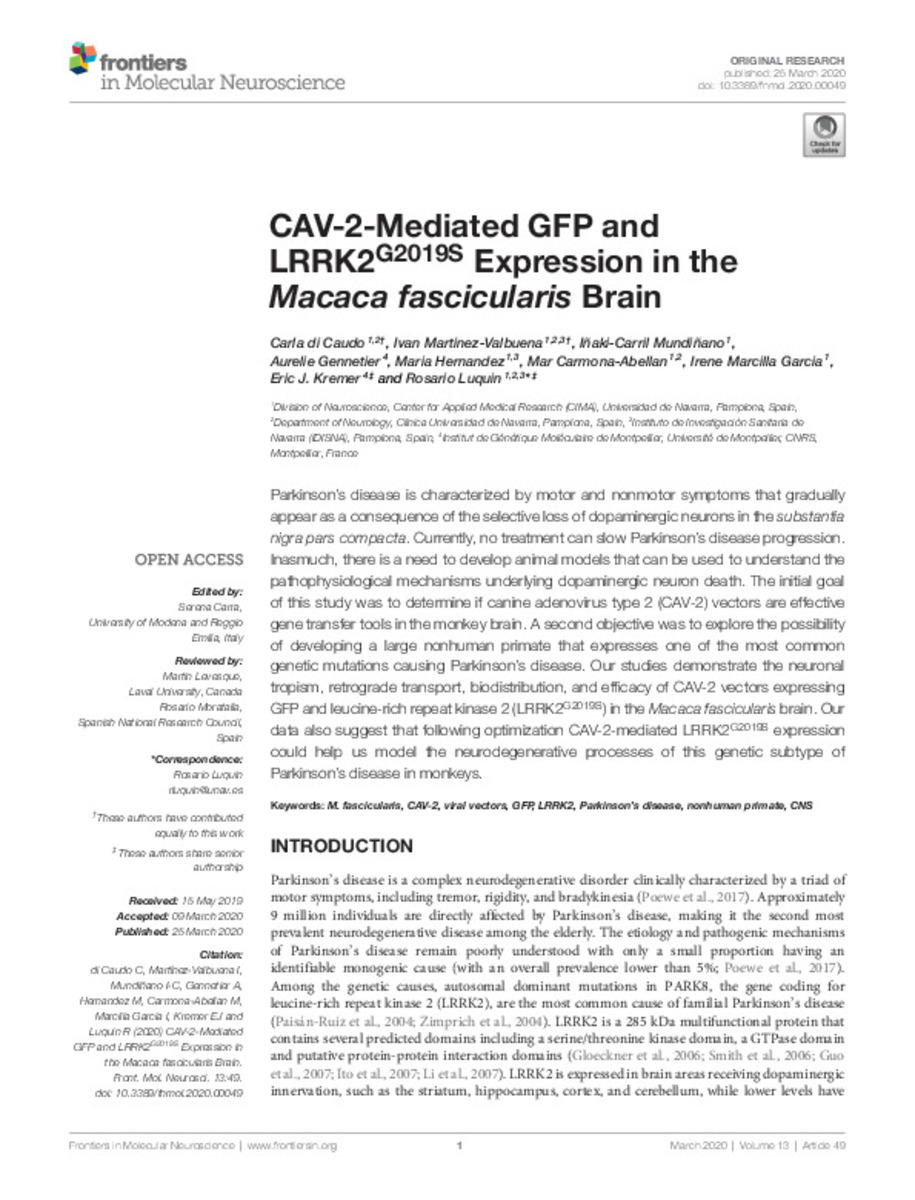CAV-2-Mediated GFP and LRRK2G2019S Expression in the Macaca fascicularis Brain
Palabras clave :
M. fascicularis
CAV-2
Viral vectors
GFP
LRRK2
Parkinson’s disease
Nonhuman primate
CNS
Fecha de publicación :
2020
Nota:
This is an
open-access article distributed under the terms of the Creative Commons Attribution
License (CC BY). The use, distribution or reproduction in other forums is permitted,
provided the original author(s) and the copyright owner(s) are credited and that the
original publication in this journal is cited, in accordance with accepted academic
practice. No use, distribution or reproduction is permitted which does not comply
with these terms.
Cita:
Di-Caudo, C. (Carla); Martinez-Valbuena, I. (Iván); Carril-Mundiñano, I. (Iñaki); et al. "CAV-2-Mediated GFP and LRRK2G2019S Expression in the Macaca fascicularis Brain". Frontiers in Molecular Neuroscience. 13 (49), 2020,
Aparece en las colecciones:
Estadísticas e impacto
0 citas en

0 citas en

Los ítems de Dadun están protegidos por copyright, con todos los derechos reservados, a menos que se indique lo contrario.







